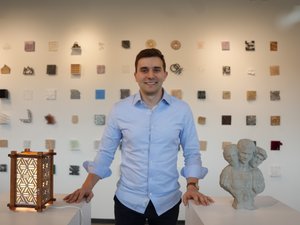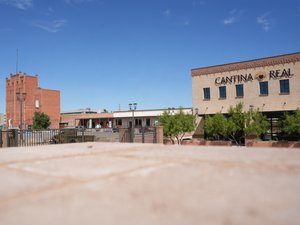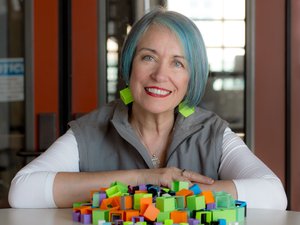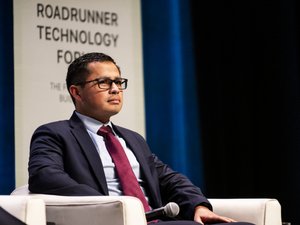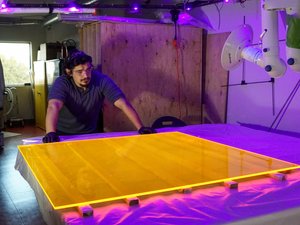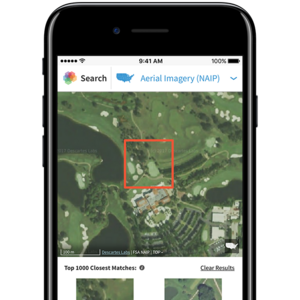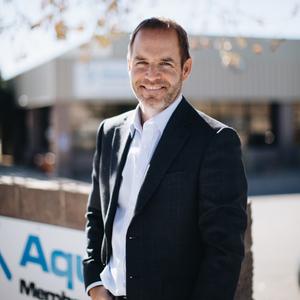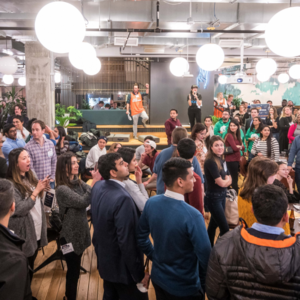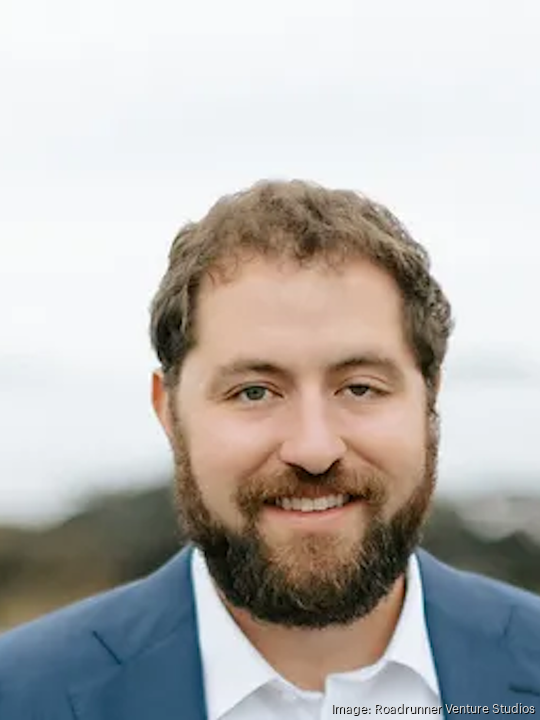
Mike Chieco is a builder, simply put.
Not in the construction or the real estate sense. Rather, Chieco's spent his nearly two-decade career building businesses worldwide.
That work has taken him from New Haven, Connecticut, where he completed a master of business administration and master's of public policy at Yale University's School of Management and Jackson School of Global Affairs, respectively; to Cincinnati, Ohio, where he managed brands under global consumer goods corporation Procter & Gamble Co.; to Nairobi, Kenya, where he helped grow brands like Subway Sandwiches, Pizza Hut and Yves Rocher in East Africa.
"If you are Abercrombie & Fitch and you want to enter the East African market," Chieco explained of his Kenya-based work, "instead of learning everything about East Africa — learning everything about the supply chains and the people — come to our platform and plug your brand in. We'll take care of all the difficult stuff and you get to focus on what you're really good at, which is making clothes."
At Yale is where Chieco met Adam Hammer, the president and co-founder of Albuquerque's Roadrunner Venture Studios. The venture studio, which officially launched in the Duke City's Innovation District in December, aims to spin out successful startups in "deep tech" industries like energy technology, advanced manufacturing or aerospace, for example.
The studio has three portfolio startups — Hydrosonics, a hydrogen tech company spun out of Los Alamos National Laboratory; Fab.ai, a company building a propriety artificial intelligence model for advanced manufacturing; and Inaedis, a biologics company.
Chieco was Roadrunner's first hire under Hammer, its president and co-founder.
Currently, he's the studio's head of business development, traveling between its Albuquerque headquarters and his home in California's Bay Area.
One aspect of Chieco's work with Roadrunner is developing the studio's internal business strategy — how it finds partners, how it builds its presence in New Mexico and throughout the U.S. and how it works with local sponsors and other community stakeholders.
Another core part of the job, he said, is directly working with Roadrunner's portfolio companies.
"My job is to get them from, you just entered the studio on day one, you don't have a company, don't have anything," he said, "to six to 12 months later, you have a company, you're raising money, you have your first customers, you have a product — you're born. My role is shepherding them along that zero-to-one journey."
New Mexico Inno sat down with Chieco to learn more about his role with Roadrunner, where New Mexico fits into the studio's continued development and lessons learned since its first introduction to the Albuquerque community nearly one year ago.
This interview was edited for brevity and clarity.
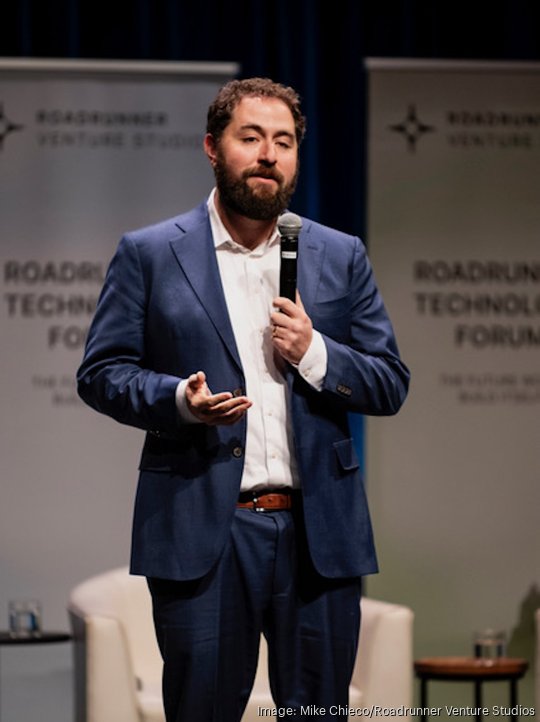
New Mexico Inno: What drew you to Roadrunner Venture Studios?
Mike Chieco: My entire career has been bouncing back and forth between big companies and small, but always with the theme of building — building internally in big companies and building externally with small. For a long time, I've been looking for a combination of what I like to do in business, which is build companies, go zero to one, and what I think is really necessary for the world and for the U.S.
When I was at Procter & Gamble, I built a hair care company that analyzed your hair, which was a really cool "23andMe" for your hair. But at the end of the day, I was like, "Well, great, I learned how to do more hair care. That's exciting for everybody." It didn't really have a sense of mission and purpose.
How do you see New Mexico fitting into the continued business development of the studio? New Mexico's our forever home. As New Mexico goes, so goes the studio. I think there's a lot to offer here in New Mexico that's really untapped. The reason we came to New Mexico is that there's so much science and so little entrepreneurship. We want to help solve that.
What really attracted me to Roadrunner was the opportunity to do this with the best scientists and entrepreneurs in the world in a mission I believe in.
When we came here there was already a really great ecosystem in place — people like the [New Mexico] Angels and Drew [Tulchin], and Sandy [Hirschberg] and what she does with the New Mexico Startup Alliance, and TJ [Cook] over at [CNM] Ingenuity, and tens of others have all done really great work. Hopefully, we can contribute to that and build upon it to build out the community even further.
The three things you need for a startup is an idea, the people and the capital. We're hopefully going to help with all three of those in bringing ideas from across the nation here, bringing people and then bringing capital.
What have you learned so far that could inform future studio iterations or more companies you're trying to build? What have been some of your big takeaways so far? There's a tremendous amount of learning, because there's not really a playbook for this. There are a lot of playbooks for, "I want to start a business-to-business payments company," or, "I want to build an Uber for cats." There are a thousand studios out there that do that. I don't think there are many, or any, real examples of this kind of work anywhere in the U.S. or the globe. There's a ton of learning to be gained from that.
The people, first and foremost, are the most important aspect at every turn. We've learned how to build within the Albuquerque community and leverage a lot of the great resources that are already here. The power of community is really important — that's a big lesson.
I think the second big lesson is that this is really hard. Building deep tech companies is hard. All of these questions that we're asking, people have asked them before. Luis [Chavez] with [Hydrosonics], for example — it's not like hydrogen is a brand new technology. It's been around for 80, 90 years. But what we have to do is find the reasons why it's not being done that way today and then break those paradigms.
One of the big learnings for me is constantly looking for those pressure points or those "paradigm-busting" moments where we can say, "If we put enough pressure here — whether it be politically, financially, technologically — then we can change how the system works." Finding those pressure points isn't easy. It takes a lot of research and a lot of talking and a lot of business development. But it's probably the most important thing we do.
